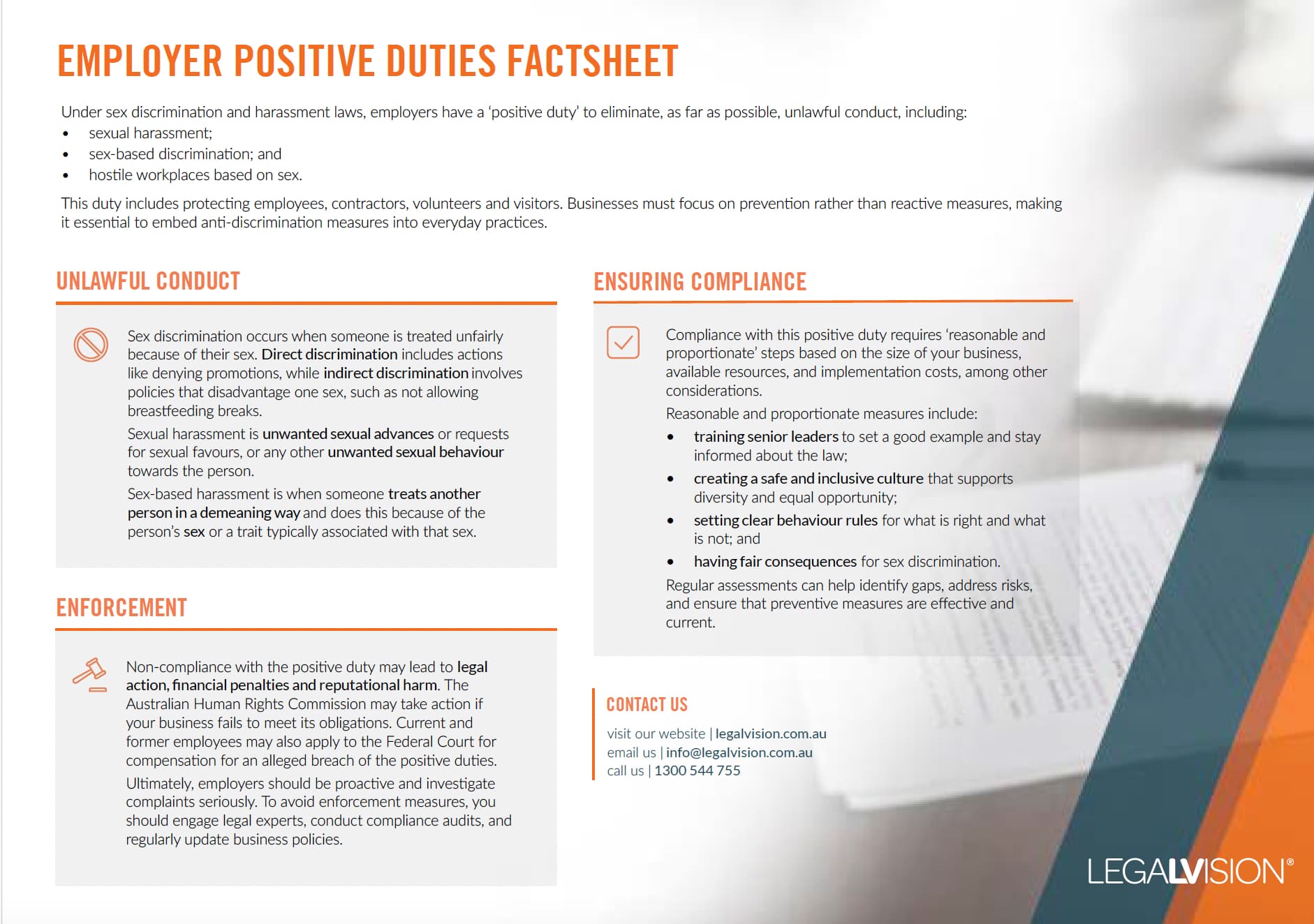In Short
-
New WHS Regulations: Businesses in Queensland must implement sexual harassment prevention plans. A new federal Code of Practice provides guidance on sexual and gender-based harassment.
-
NSW Regulator Changes: SafeWork NSW becomes a standalone regulator from 25 March 2025, strengthening oversight of workplace safety.
-
Recent Cases and Incidents: Two stop-bullying claims failed due to lack of evidence, while a forklift safety incident resulted in a fine and conviction after the company failed to implement proper safety measures.
Tips for Businesses
Stay on top of evolving work health and safety laws, such as Queensland’s new prevention plans and the national Code for sexual harassment. Ensure your organisation complies by maintaining clear policies and risk management systems. Regularly review practices to minimise physical safety risks, such as implementing traffic management plans and using proper signage.
Officers have a continuous duty to keep their organisations compliant and stay informed about work health and safety matters. This update covers recent developments to help officers meet their obligations and stay up-to-date with WHS changes.
Legislative Update
Some key legislative changes have occurred over the past month. As of 1 March 2025, persons conducting a business or undertaking (PCBUs) in Queensland are required to prepare and implement a prevention plan to manage identified risks of sexual harassment and sex or gender-based harassment in the workplace.
On 5 March 2025, the federal Government approved the Work Health and Safety (Sexual and Gender-Based Harassment) Code of Practice 2025 (Code). The Code:
- makes minor additions to Safe Work Australia’s model code of practice; and
- provides practical guidance to employers and workers about preventing and responding to sexual harassment.
Additionally, on 25 March 2025, the NSW Government passed the Work Health and Safety Amendment (Standalone Regulator) Bill 2025 (Bill). A key change introduced by the Bill is establishing SafeWork NSW as a standalone regulator.
Cases and Incidents
Continue reading this article below the formStop-Bullying Orders Fail to Pass
Two recent stop-bullying claims have failed to pass as the employees were unable to establish a connection between their employer’s conduct and the alleged bullying.
The first employee had been requested by their employer to return to the office, following a temporary work from home arrangement. The employer, who provided evidence of their support to the employee, had made genuine attempts to transition the employee back to the office. This included developing a plan when it became more challenging for the employee to remain working from home.
A separate claim for stop-bullying orders was rejected where another employee alleged that their performance management process was a form of bullying. Here, the employer was able to establish that:
- their performance concerns were genuine; and
- the performance management process was fair, reasonable and appropriate given the performance concerns.

This fact sheet outlines employers’ ‘positive duty’ under sex discrimination laws, highlighting proactive measures to prevent unlawful conduct.
Physical Safety Risks
Recent cases have also focused on physical safety risks, such as a conviction relating to a forklift incident. Where PCBUs have failed to take reasonable steps to minimise or eliminate physical risks to their workers’ safety, fines have been issued. Generally, these fines resulted from PCBUs failing to have systems or processes in place.
1. What Happened?
A worker was injured when they were struck by a forklift. The worker’s leg had been dragged under the forklift, and they suffered serious injuries. An investigation found that the driveway in which the forklift was used was not a designated loading zone. However, it had previously been used as one.
2. What Was the Outcome?
The company was initially fined $20,000 without a conviction. However, following an appeal, the original sentence was set aside and a conviction and fine of $50,000 were imposed. The company was also ordered to pay $4,575 in costs.
3. Key Takeaways
In this case, it was reasonably practicable for the company to implement a traffic management plan to maintain a safety zone between plant equipment and pedestrians. Further considerations included designated areas for loading and unloading.
PCBUs should ensure that they have conducted risk assessments and taken reasonable steps to ensure the health and safety of their workers. This could include implementing and maintaining:
- traffic management plans;
- signage and physical barriers; and
- clear visibility, such as effective lighting.
Questions?
If you need legal assistance with a WHS matter or need help identifying an officer, book a consultation call on Prism. As a member, you can request unlimited legal advice consultations.
We appreciate your feedback – your submission has been successfully received.












